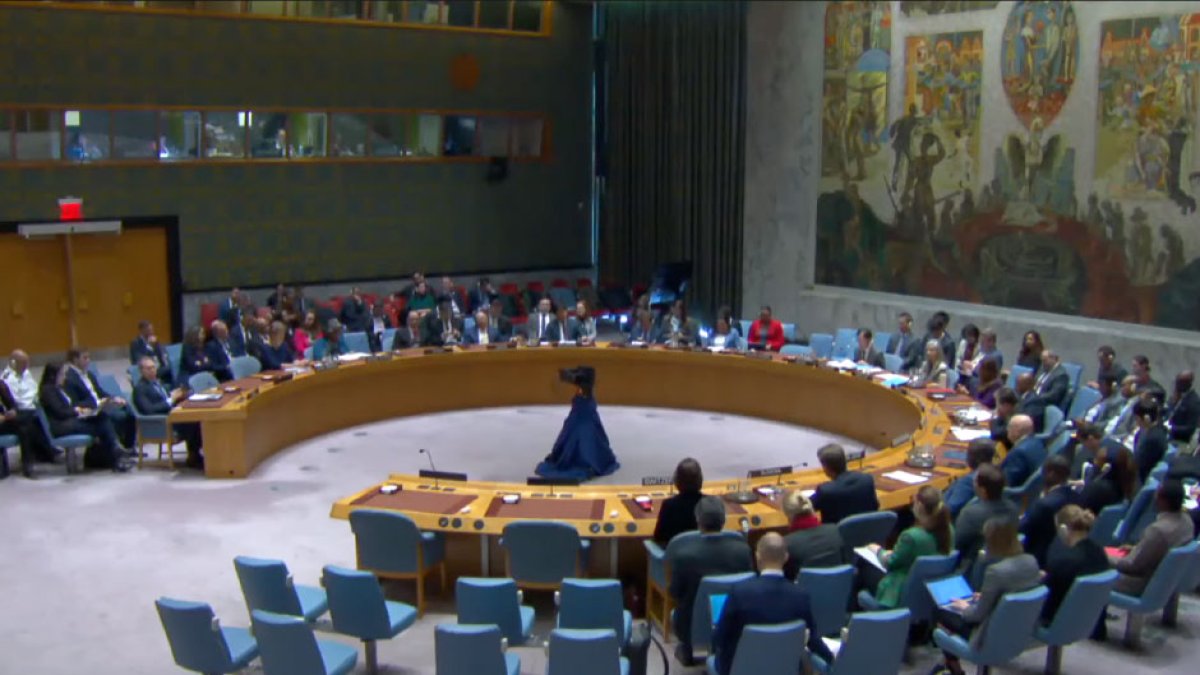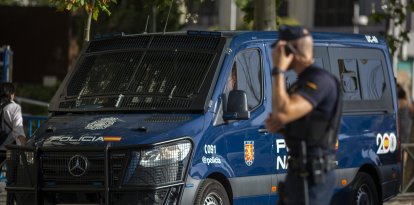Russia and China veto the US resolution at the UN for a ceasefire in Gaza
The United States ambassador to the United Nations targeted Moscow and Beijing after the U.S. proposal was not approved in the Security Council: "Russia and China still could not bring itself to condemn Hamas's terrorist attacks on October 7."

(ONU / Youtube)
Russia and China vetoed the United States resolution presented to the U.N. Security Council for an "imperative" ceasefire in Gaza as part of an agreement to release people kidnapped by Hamas, in order to protect civilians and allow humanitarian aid to be delivered to more than 2 million Palestinians.
This was the fourth time since the start of the war in October that the Security Council has failed to reach agreement on a ceasefire resolution. This time, the dispute was due to the United States' insistence on linking the call for a truce with an agreement for the release of hostages and with a condemnation of Hamas. However, China and Russia demand an unconditional ceasefire resolution.
Vasily Nebenzya, Russia's ambassador to the U.N., said that the resolution presented by the United States "contains an effective green light for Israel to mount a military operation in Rafah." And he added that his country will no longer tolerate “pointless resolutions … which lead us to nowhere.”
The United States ambassador to the U.N. Linda Thomas-Greenfield criticized China and Russia's decision in harsh terms.
"Today, the United States put forward a resolution in good faith after consulting with all council members and after multiple rounds of edits. The vast majority of this council voted in favor of this resolution. But, unfortunately, Russia and China decided to exercise its veto."
Thomas-Greenfield added that "There are two deeply, deeply cynical reasons behind its votes. First, Russia and China still could not bring itself to condemn Hamas's terrorist attacks on October 7 …The second reason behind this veto is not just cynical. It's also petty. Russia and China simply did not want to vote for a resolution that was penned by the United States because it would rather see us fail than to see this council succeed, even after inclusive consultations over weeks and weeks."
Gilad Erdan, Israel's representative to the U.N., thanked the United States, and regretted that "for purely political reasons, this resolution did not pass, and terrorists can continue benefiting from this council whitewashing their crimes."
Tense meeting between Blinken and Netanyahu
The vote occurred during the visit by Secretary of State Antony Blinken to Israel, the last stop on his tour of the Middle East. The official held a tense meeting with the Israeli War Cabinet. During the meeting, Blinken pressed on the imminent IDF operation in Rafah, Gaza, and to reach an agreement regarding the hostages who are still being held by Hamas, which is why he tried to convince the Israeli government to allow the return of the Gazans to the north of the strip, according to the Israeli news site Ynet.
The U.S. official also warned that if Israeli authorities do not formulate a post-war plan, Israel could lose global support.
Following the meeting with Blinken, Israeli Prime Minister Benjamin Netanyahu said he conveyed to the U.S. official that Israel could not achieve victory without a raid on Rafah. "I told him that I hope we will do it with the support of the U.S., but if we have to - we will do it alone."
‘No real progress’ in negotiations with Hamas to free hostages
While David Barnea, head of the Mossad, was heading to Doha, Qatar, for talks with senior American, Egyptian and Qatari officials, with the aim of reaching an agreement for the release of hostages in Gaza, a high-level Israeli source told The Times of Israel that there has been “no real progress” in negotiations with the terrorist organization.
"The Americans are dressing it up as progress," the source said. "The pressure to move forward [with negotiations] is coming from them," he added.
The European Union joins US pressure against Israel to reach a ceasefire
The European Union (E.U.) came together for the first time since the Hamas attacks on Israel and issued a joint statement urging a "sustainable ceasefire" in the Gaza Strip, while urging Israel to avoid a ground operation in Rafah.
"The E.U. calls for an immediate humanitarian pause leading to a sustainable ceasefire. Full & safe humanitarian access into Gaza is essential to provide the civilian population with life-saving assistance in a catastrophic situation in Gaza," said Charles Michel, President of the European Council.
Although the E.U. strongly condemned Hamas's Oct. 7, 2023, massacre and recognized Israel's right to self-defense under international law, it stated that there has been a "disproportionate effect "on civilians that could worsen if the Jewish state carries out its military operation in Rafah.
However, the pressure exerted by the E.U. and the United States does not seem to influence the decision-making of Netanyahu’s government, since everything seems to indicate that the Israeli prime minister considers that aborting the incursion in Rafah would represent a demonstration of weakness in its fight against Hamas.

























